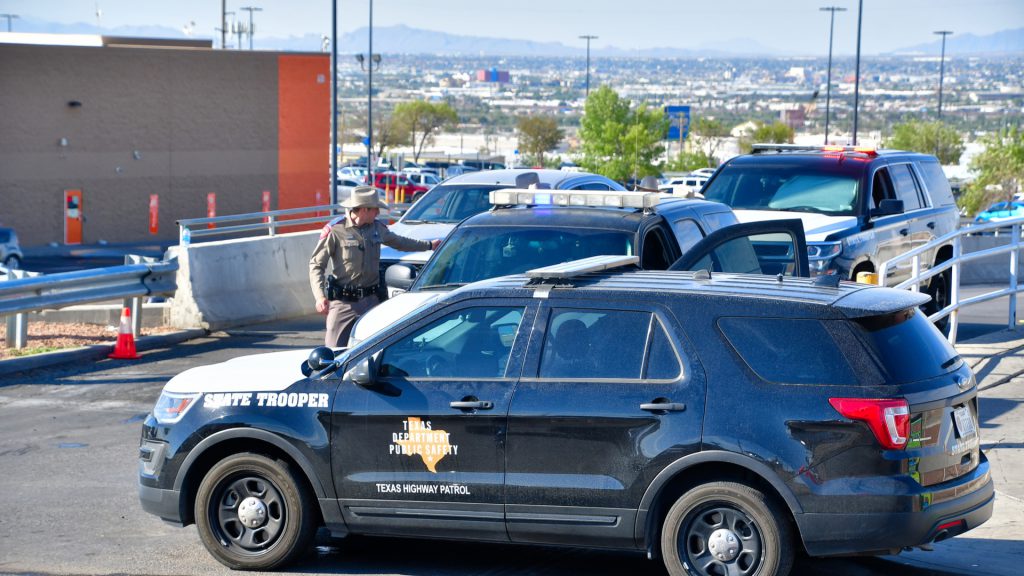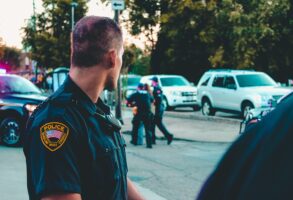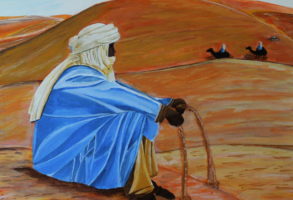
Published August 5, 2019
When Hutu tribesmen in Rwanda killed some 800,000 of their Tutsi neighbors over 100 days in 1994, they did not use guns. They worked with machetes, knives, and clubs. Bullets were too expensive. In some cases, the Hutu offered the Tutsi the option of purchasing a bullet to be used on themselves for a quicker death.
After the El Paso and Dayton mass shootings, I found myself thinking about the Rwandan genocide. And I thought of the Serbs’ mass murder of Muslims in Bosnia in 1992. In that case, politicians—led by Serbian president Slobodan Milosevic and the Bosnian Serb leader Radovan Karadzic—stirred up old ethnic furies that had been quiet. Bosnian Serbs who had lived in peace under Yugoslav Communists now started tossing grenades into their Muslim neighbors’ gardens, raping their women, and rounding up the men and putting them into concentration camps, or slaughtering them and throwing the corpses into rivers or mass graves.
America has been fantastically rich and lucky, and on the whole exempt from the ethnic and religious violence in some parts of the world that seems almost a mere facet of human nature—part of the human capacity for evil. It seems that there has always been a binary politics of slaughter, of the kind erupting, for example, among Hindus and Muslims around the time that India gained its independence.
At first glance, the killings in El Paso and Dayton appear entirely different from such foreign horrors. They were spasms of private madness, one would think—surely not tribal or programmatic or ideological or religious acts. And yet, there seems an inkling in these dramas, and in other recent mass shootings—the one in the Pittsburgh synagogue, for example—of something ominously new in the way of American violence: a whiff or germ or intuition of a new infection, as if the deeds were not just crazy (though certainly they were that), but belonged to a category that might be more sinister; as if they contained the germ of the Rwandan or Bosnian something. In the twenty-first century, such germs go around on the Internet at the speed of light. “Manifestos” appear—electronic solidarities of the like-minded.
If President Trump and the Democratic presidential candidates had experience of the real thing, of the sort of evil collective violence I am talking about, they would turn aside from the road that leads to the Balkans. Trump would stop playing peekaboo with that universal capacity for evil—would stop poking the beast in the crowds as if to provoke it. Democrats, who share the blame, would drop their tribal identity politics—their pandering embrace of illegal immigration, for instance, with its implication that people are above the law if self-righteous Democrats say that they are. It would be too much to expect them to abandon their hallucinogenic promises of the Big Rock Candy Mountain—gaudy and irresponsible visions that bid fair to reelect the president whom they condemn for being gaudy and irresponsible.
I’d guess, though, that neither side will stop. They will go on being themselves, oblivious to their own faults. If Trump and the Democrats were Roman Catholics going to confession, they would argue loudly with the priest and tell him that their sins were not sins at all because they are incapable of sin.
El Paso and Dayton brought the 2020 presidential election into sharp focus. It will turn mainly on race and racism and immigration, on gun violence and “white nationalism” and “white terrorism.” And, of course, on the rich and unpredictable subject of Trump himself.
Every presidential election tells you something about who Americans are and who they wish to be. This time, the answer will be bitterly inconclusive. Whoever wins, the divisions will remain and probably grow worse.
The different thing this year—the dangerous innovation—is that the election will be framed not in terms of political or philosophical or even class differences but rather in the idiom of race. America’s original sin of slavery, its legacy and unpaid debts, has formed an alliance with the highly racialized issue of immigration from the southern border.
The Democrats’ obsession with identity politics has colluded with Trump’s provocations to split Americans into polarized tribes—American versions of Croat and Serb, Hutu and Tutsi, Sunni and Shi’ite, Hindu and Muslim. There seems no way to stop this. An infection—a kind of Ebola—has gotten into the American body politic. It’s the old fable about the scorpion that persuades a frog to give him a ride across the river—and then, in midstream, stings the frog, dooming them both: “What did you expect? I’m a scorpion.” In the 2020 version, the frog is America and both political parties, alas, are scorpions.
Democrats will hammer Trump again and again as a “racist.” The charge will not bother Trump or his base much. The words racist and racism have grown less effective with repetition. They have started to sound like items of old Communist invective, like “capitalist stooge.” It’s not that racism does not exist—it certainly does—but that politics, which so often contaminates and disables language, has made the term corrupt.
All the forces of American politics are centrifugal. Trumpists accuse the Democrats of wanting to turn America into Venezuela. Now Democrats will say that Republicans want to turn America into the former Yugoslavia.
Despite his conciliatory statement on Monday morning, the president, too old to change his style, will hit back, as the campaign proceeds, with every tweet and every free-form, incendiary pep-rally speech. The Democrats will follow suit, with their own polemics. Through a long, dangerous season, the American mind will be haunted by the flickering specter—now you see it, now you don’t—of racial violence.








